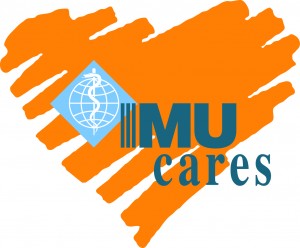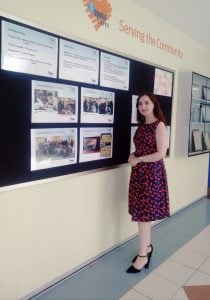[fusion_builder_container hundred_percent=”no” equal_height_columns=”no” menu_anchor=”” hide_on_mobile=”small-visibility,medium-visibility,large-visibility” class=”” id=”” background_color=”” background_image=”” background_position=”center center” background_repeat=”no-repeat” fade=”no” background_parallax=”none” parallax_speed=”0.3″ video_mp4=”” video_webm=”” video_ogv=”” video_url=”” video_aspect_ratio=”16:9″ video_loop=”yes” video_mute=”yes” overlay_color=”” overlay_opacity=”0.5″ video_preview_image=”” border_size=”” border_color=”” border_style=”solid” padding_top=”” padding_bottom=”” padding_left=”” padding_right=””][fusion_builder_row][fusion_builder_column type=”1_1″ layout=”1_1″ background_position=”left top” background_color=”” border_size=”” border_color=”” border_style=”solid” border_position=”all” spacing=”yes” background_image=”” background_repeat=”no-repeat” padding=”” margin_top=”0px” margin_bottom=”0px” class=”” id=”” animation_type=”” animation_speed=”0.3″ animation_direction=”left” hide_on_mobile=”small-visibility,medium-visibility,large-visibility” center_content=”no” last=”no” min_height=”” hover_type=”none” link=””][fusion_text] 31 July 2019 – Sitting in a chair in her pink frolic blouse, tentative brown eyes and a plum-pigmented smile that welcomed even the shyest of souls, it is without a doubt that this Iranian girl – Dr Zahra Fazli Khalaf, would soon come to be a force to be reckoned with in the world of psychology. With a bachelor degree in midwifery, a branch of medical sciences concerned with pregnancy, childbirth, and reproductive health, many would wonder – how did she get to a solid upper hand in the expertise of gender and sexuality? What was her journey like transcending into the medical grounds of IMU? And what will life entice after IMU?
Expressing her take on being multidimensional, her curious, passionate and nurturing nature, it is no wonder that these personal characteristics are what helps her clients, be it in the counselling room or out in the community. Her catalyst in further exploring the depths of gender and sexuality came when she started pursuing studies in sexual and reproductive health and later delving in family planning counselling, in which she discovered many revelations. She discovered that, in her home country, there were many issues with sexuality where there’s a lack of education for a healthy sex life. The behavioral issues and lack of communication concerning the domain prompted more issues faced by women particularly as they clasped the responsibility for sexual health and reproduction while it was refrained by men as it was a topic that questioned their masculinity. This motivated her to pursue a master’s degree in counseling and psychotherapy to ignite conversations and awareness on sexual health to help women build a stronger foundation in the knowledge of their bodies while breaking barriers for men to be able to talk about it. Upon her arrival in IMU, Zahra completed her PhD in psychology and her dissertation, entitled “Gender, Sexuality, and Young Adults in Malaysian Universities: A Phenomenological Study and Implications for Sexuality Education and Sexual Health”, sought positive results and reviews which further prompted her curiosity in the research on experience and perception about sexual health, womanhood and masculinity in the younger generation.  This was when her partnership with IMU Cares blossomed. Known for her altruistic involvement in community work where she taught young girls and boys in urban and rural areas and refugee centers about sexual health and rights, her interest towards IMU Cares sparked as she was engaged in their integrity in helping underrepresented communities while bringing light into unspoken topics – much in-sync to her own values. She was graciously welcomed by Prof Ong, and then resided her role as project leader to conduct activities for the enhancement of sexual and reproductive health and rights in secondary schools in KL, Selangor and Seremban, as well as the partner centers dedicated for the education of the underprivileged adolescents. She also worked with Federation of Reproductive Health Associations of Malaysia (FRHAM) where she organised awareness talks on sexuality for the mid-life and elderly. Overall, she realised that, in both Iran and Malaysia, sexual health education isn’t something that was talked about and that gender and sexual health education was inadequate. [/fusion_text][fusion_imageframe image_id=”36811″ style_type=”none” stylecolor=”” hover_type=”none” bordersize=”15″ bordercolor=”#ffffff” borderradius=”” align=”center” lightbox=”no” gallery_id=”” lightbox_image=”” alt=”” link=”” linktarget=”_self” hide_on_mobile=”small-visibility,medium-visibility,large-visibility” class=”” id=”” animation_type=”” animation_direction=”left” animation_speed=”0.3″ animation_offset=””]https://www.imu.edu.my/media/2019/08/photo-2a.jpg[/fusion_imageframe][fusion_text] As stated by SWWS President, Margaret Bedus, “Job access and services including healthcare are too far behind even in urban areas. This impacts both men and women, particularly women as they are often left behind and have fewer decision-making abilities over their bodies (The Star, 2019). Hence, that’s what projected her continued research in culturally-sensitive topics such as sexuality and intimate relationships, LGBT mental health, sexual health and rights of disabled youths, and sexuality among the elderly. This is when her passion and hard-work was recognised which further fueled her career in pursuing gender and feminist studies in the University of North Texas – where she will be receiving an award for her humanitarian accomplishments. Apart from her focus on the unspoken whereabouts of gender and sexuality, Dr Zahra also has a focus on cognitive psychology where she has worked with communities concerning dementia. Dr Zahra also collaborated concurrent projects with Alzheimer’s disease Foundation Malaysia (ADFM) where she delved into and explored another underrepresented community – Alzheimer’s disease patients. [/fusion_text][fusion_imageframe image_id=”36801″ style_type=”none” stylecolor=”” hover_type=”none” bordersize=”15″ bordercolor=”#ffffff” borderradius=”” align=”none” lightbox=”no” gallery_id=”” lightbox_image=”” alt=”” link=”” linktarget=”_self” hide_on_mobile=”small-visibility,medium-visibility,large-visibility” class=”” id=”” animation_type=”” animation_direction=”left” animation_speed=”0.3″ animation_offset=””]https://www.imu.edu.my/media/2019/08/photo-2d.jpg[/fusion_imageframe][fusion_text]
This was when her partnership with IMU Cares blossomed. Known for her altruistic involvement in community work where she taught young girls and boys in urban and rural areas and refugee centers about sexual health and rights, her interest towards IMU Cares sparked as she was engaged in their integrity in helping underrepresented communities while bringing light into unspoken topics – much in-sync to her own values. She was graciously welcomed by Prof Ong, and then resided her role as project leader to conduct activities for the enhancement of sexual and reproductive health and rights in secondary schools in KL, Selangor and Seremban, as well as the partner centers dedicated for the education of the underprivileged adolescents. She also worked with Federation of Reproductive Health Associations of Malaysia (FRHAM) where she organised awareness talks on sexuality for the mid-life and elderly. Overall, she realised that, in both Iran and Malaysia, sexual health education isn’t something that was talked about and that gender and sexual health education was inadequate. [/fusion_text][fusion_imageframe image_id=”36811″ style_type=”none” stylecolor=”” hover_type=”none” bordersize=”15″ bordercolor=”#ffffff” borderradius=”” align=”center” lightbox=”no” gallery_id=”” lightbox_image=”” alt=”” link=”” linktarget=”_self” hide_on_mobile=”small-visibility,medium-visibility,large-visibility” class=”” id=”” animation_type=”” animation_direction=”left” animation_speed=”0.3″ animation_offset=””]https://www.imu.edu.my/media/2019/08/photo-2a.jpg[/fusion_imageframe][fusion_text] As stated by SWWS President, Margaret Bedus, “Job access and services including healthcare are too far behind even in urban areas. This impacts both men and women, particularly women as they are often left behind and have fewer decision-making abilities over their bodies (The Star, 2019). Hence, that’s what projected her continued research in culturally-sensitive topics such as sexuality and intimate relationships, LGBT mental health, sexual health and rights of disabled youths, and sexuality among the elderly. This is when her passion and hard-work was recognised which further fueled her career in pursuing gender and feminist studies in the University of North Texas – where she will be receiving an award for her humanitarian accomplishments. Apart from her focus on the unspoken whereabouts of gender and sexuality, Dr Zahra also has a focus on cognitive psychology where she has worked with communities concerning dementia. Dr Zahra also collaborated concurrent projects with Alzheimer’s disease Foundation Malaysia (ADFM) where she delved into and explored another underrepresented community – Alzheimer’s disease patients. [/fusion_text][fusion_imageframe image_id=”36801″ style_type=”none” stylecolor=”” hover_type=”none” bordersize=”15″ bordercolor=”#ffffff” borderradius=”” align=”none” lightbox=”no” gallery_id=”” lightbox_image=”” alt=”” link=”” linktarget=”_self” hide_on_mobile=”small-visibility,medium-visibility,large-visibility” class=”” id=”” animation_type=”” animation_direction=”left” animation_speed=”0.3″ animation_offset=””]https://www.imu.edu.my/media/2019/08/photo-2d.jpg[/fusion_imageframe][fusion_text]
Being the project leader, she spread more awareness and incorporated student experiential learning where IMU psychology students and the Psychology Club organised meets with the elderly to, not only create more awareness and knowledge of dementia, but to also have a balance of interaction and activities between the students and Alzheimer’s disease patients. The ultimate goal was to learn about the different levels of dementia and breaking down barriers associated with dementia patients. To have society develop a perspective of more kindness and compassi
on, not only towards the patients, but to their caregivers as well.
“No one looks after the caregivers! Especially, when the caregivers are the adult children of Alzheimer’s disease patient, they need more support. Our research showed that they suffer from high levels of stress and caregiver strain compared to the other caregiver groups. Sadly, they lose their parent to Alzheimer’s disease before the parent dies”, she exclaims.
She’s a faculty member, mental health counsellor, health educator and gender equality advocate. All of these are dimly lit compared to the humanitarian that Dr Zahra is. Asking what she hopes for the future, her only response was “to have a more inclusive approach to education, healthcare and community service activities and to include people regardless of gender, sexuality, age, socioeconomic status and race”.
While she recounted her past community experience with IMU Cares, she was amazed with the research outputs that were produced along with the community engagements. In fact, a couple of days before departing to USA, she and her team won third prize in the Oral Presentation at 21st Asia Pacific Regional Conference of Alzheimer’s Disease International on 18 August, 2019. With her newfound undertaking in Texas, future research projects in mind and a whole new adventure ahead of her, one may wonder – what else is next for Dr Zahra? [/fusion_text][fusion_table]
| Acknowledgments |
|---|
| Special thanks to Jenny Ho of Alzheimer’s Disease Foundation of Malaysia (ADFM) who has contributed tremendously in Dr Zahra’s projects with ADFM, which is our community partner. |
[/fusion_table][fusion_text] Written by Ryan Robbie Quah Weng Kin (PS216) Photos by Dr Zahra Fazli Khalaf Reference: Article from The Star: https://www.thestar.com.my/news/nation/2019/03/08/sarawak-group-urges-govt-to-enact-new-laws-to-safeguard-womens-rights/ [/fusion_text][/fusion_builder_column][/fusion_builder_row][/fusion_builder_container]


